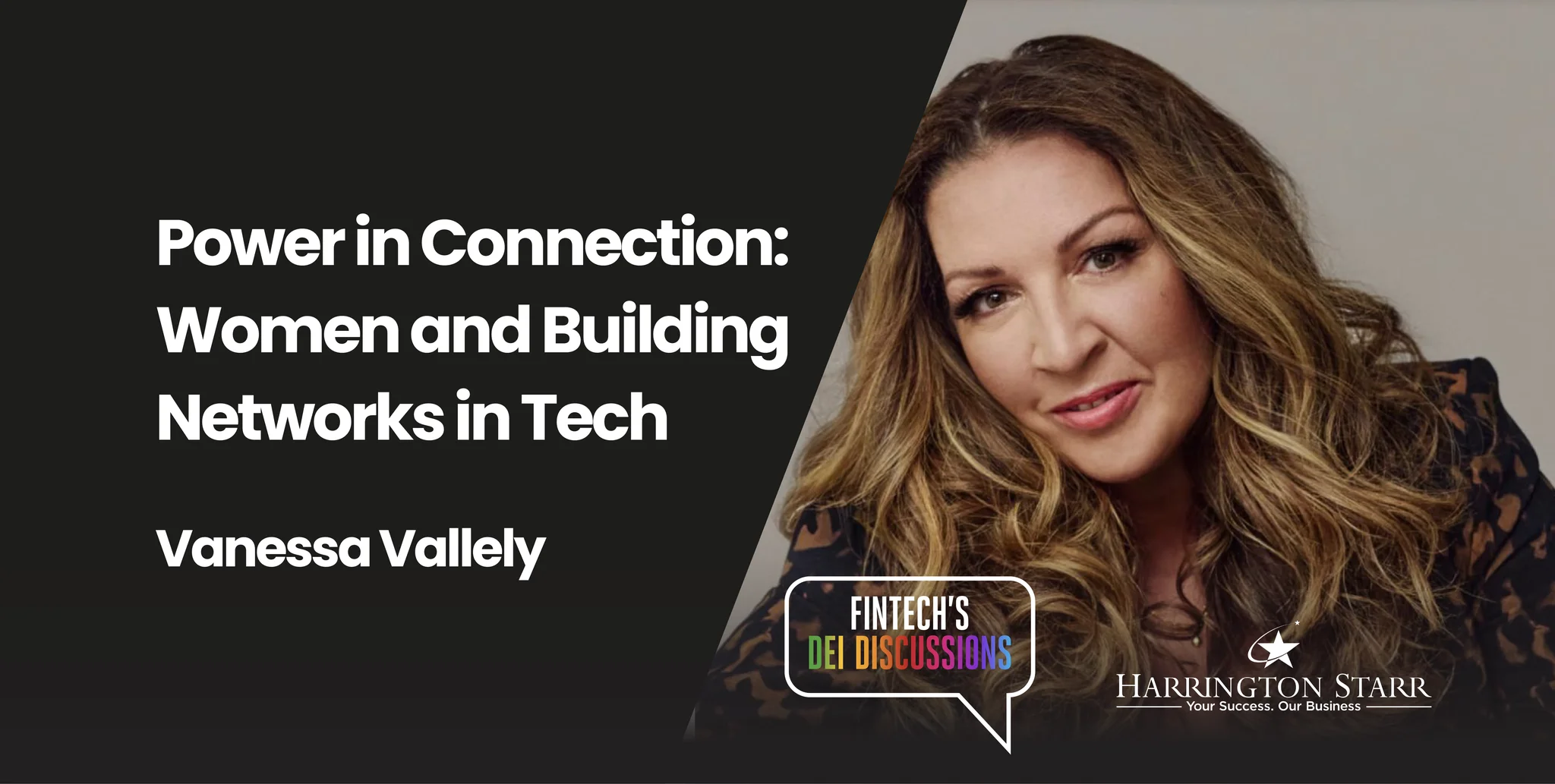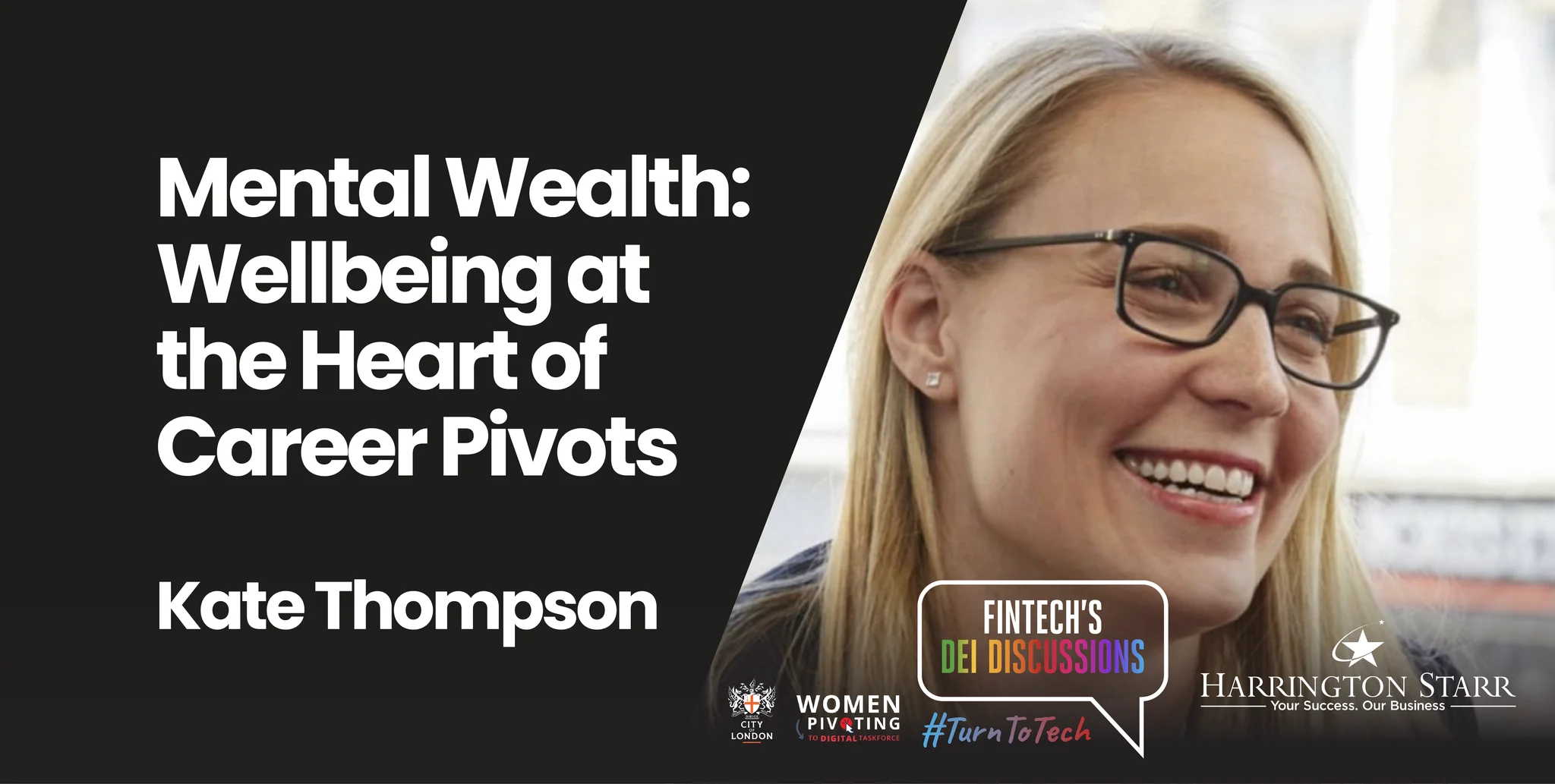
How Chess Is Creating the Next Generation of STEM and FinTech Leaders
The latest episode of FinTech’s DEI Discussions, hosted by Nadia, explores a unique and powerful idea: how the game of chess can help close the digital skills gap and inspire the next generation of women in technology. Joining Nadia for this episode are Lorin D’Costa, Founder of She Plays To Win UK, a girls’ chess charity, and Rashmi Prabhakar, Head of SaaS Transformation at Temenos. Together, they discuss how strategy, confidence, and inclusive thinking can bridge the gap between childhood learning and future success in STEM and FinTech careers.
The conversation highlights a shared belief that talent exists everywhere, but opportunity does not. Through chess, they demonstrate how girls can gain the critical thinking, confidence, and analytical mindset needed to thrive in technology and finance.
Linking Chess, Skills, and the Future of FinTech Talent
As the discussion opens, Rashmi Prabhakar introduces her professional journey. With a background in computer science and over 28 years of experience across banking, financial services, and FinTech, she leads SaaS transformation at Temenos, one of the world’s most established financial technology companies. Her role involves overseeing complex, large-scale programmes designed to deliver innovative software solutions to banks and financial institutions.
Alongside her corporate achievements, Rashmi is a passionate advocate for girls in STEM and women in technology. As a trustee of She Plays To Win UK, she dedicates her time to supporting initiatives that help young girls develop future-ready skills. She explains that the UK’s digital skills gap is a growing concern, with government research estimating it could cost the economy £63 billion annually.
Rashmi notes that many adults still lack essential digital capabilities, and nearly half of UK businesses struggle to fill technical roles. The challenge, she stresses, is not simply a lack of talent but rather a lack of investment in the right skills and encouragement at the right stages. In her view, the most effective way to bridge this gap is to start early, nurturing problem-solving, logical reasoning, and analytical skills from childhood.
That’s where chess becomes a vital tool. It provides a practical, accessible way to develop these exact competencies, the same qualities that define success in FinTech roles such as data analysis, software engineering, and product innovation.
She Plays To Win: Building Confidence and a Talent Pipeline
Lorin D’Costa, a full-time chess teacher based in North London, brings a different but complementary perspective to the conversation. With over 15 years of coaching experience, he has taught chess at numerous schools and served as the England Women’s Chess Coach at international tournaments including the World Chess Olympiad and the European Team Championships.
In 2020, Lorin founded She Plays To Win UK, a charity focused on increasing female participation in chess. His motivation stemmed from years of seeing talented girls leave the game early because of cultural assumptions that chess was “for boys.” He recalls his early teaching days at a girls’ school in North London, where he introduced chess to a group of students who had never played before. Over time, that same school became one of the top-performing girls’ chess teams in the country, producing multiple national champions and England representatives.
This success inspired the creation of She Plays To Win UK, which started modestly with a small group of participants but has since grown to include over 1,500 girls nationwide. The charity supports players from primary school through to university, creating a genuine talent pipeline. It helps girls build essential life skills while offering them a sense of belonging and community.
The charity’s name encapsulates its mission: to show girls that they can be competitive, strategic, and successful, both on and off the board. Lorin explains that chess provides an environment where girls learn to think ahead, handle pressure, and make confident decisions, traits that align directly with leadership and technology careers.
Changing Mindsets and Breaking Stereotypes
Both guests discuss how deeply ingrained stereotypes can influence young people’s choices. Rashmi reflects on her own education, recalling that she had few female role models in engineering and technology. She attributes her success partly to the supportive environment provided by her parents, who encouraged her to pursue her interests regardless of gender norms.
She explains that while many FinTech organisations have made progress at entry level, there remains a clear imbalance as careers progress. Fewer women reach senior leadership roles, not because they lack ability, but because of unconscious bias, limited flexibility, and structural barriers.
Rashmi believes that tackling these challenges requires a shift in culture. Job descriptions need to be more inclusive, and hiring decisions must focus on merit and potential rather than familiarity or cultural fit. Organisations that truly want to change their gender balance must remove the so-called “mini-me” mentality and actively seek diversity of thought.
Meanwhile, Lorin focuses on changing perceptions from an even earlier stage, childhood. He describes witnessing the gender divide in competitive chess, where girls are often underestimated. At tournaments, young boys would assume that playing against a girl meant an easy win. Over time, however, as his female students began outperforming their male peers, those attitudes changed. The same boys who once dismissed female opponents began to respect them as equals.
Lorin sees this as the first step towards wider social change. When boys and girls learn mutual respect through shared competition, it carries through to how they treat one another later in life, in universities, workplaces, and eventually in leadership.
From Chessboards to Boardrooms: Building Future FinTech Leaders
The conversation highlights a clear connection between the lessons of chess and the skills demanded in FinTech. Chess develops foresight, patience, creativity, and strategic planning, all vital attributes for a career in financial technology.
Lorin shares that She Plays To Win has not only built confidence among girls but also demonstrated measurable success. The organisation entered an all-female team, the Lionesses, into the Four Nations Chess League, the most prestigious team competition in the UK. It was the first female-only squad in the league’s 35-year history, and remarkably, they went on to win Division Three and secure promotion to Division Two.
He explains that these achievements aren’t just about winning tournaments; they represent real, demonstrable growth in confidence, teamwork, and determination. Many of the participants balance their chess commitments with demanding academic studies, showing strong time management and focus, traits that FinTech employers value highly.
Rashmi links these achievements to the broader FinTech recruitment challenge. She points out that companies across the industry are struggling to find skilled professionals, yet a wealth of untapped talent exists. By supporting initiatives like She Plays To Win, organisations can access a future workforce that already possesses the cognitive and emotional intelligence needed for success.
She stresses that this is not about charity or social responsibility alone; it’s a business imperative. Empowering girls in STEM and technology contributes directly to innovation and growth within the FinTech ecosystem.
The Digital Skills Gap and the Role of Early Education
Rashmi brings the discussion back to the economic implications of the UK’s digital skills shortage. She argues that while policymakers and businesses acknowledge the gap, too few concrete actions are being taken to address it. The challenge is systemic, a combination of underinvestment in education, lack of visible female role models, and persistent stereotypes about which subjects are “suitable” for girls.
She warns that if these barriers remain, the skills gap will continue to widen. The FinTech sector, which relies heavily on expertise in coding, data analysis, and cybersecurity, will suffer as a result. Closing that gap requires intervention at multiple stages, from childhood education to mid-career retention.
Chess, she says, offers an ideal model because it is inexpensive, accessible, and highly effective at teaching transferable skills. It builds critical thinking, resilience, and creative problem-solving, exactly the attributes needed for success in FinTech and financial services.
Lorin agrees, adding that chess provides equal opportunity regardless of background. Unlike many sports, it requires no expensive equipment or facilities, and it allows children of all ages to compete on equal footing. He describes a 10-year-old girl from She Plays To Win who recently achieved remarkable success, defeating a former Women’s World Chess Champion and becoming the youngest girl ever to beat a chess grandmaster.
Her achievement represents more than a sporting victory; it’s a symbol of what can happen when young talent is nurtured without bias. It proves that ability, not gender, defines potential, a principle that applies just as strongly to the FinTech industry as it does to chess.
Partnerships Between Education, Business, and FinTech Recruitment
The guests discuss the importance of collaboration between educational initiatives and industry. Rashmi envisions a future where every state school in the UK could provide chess programmes for girls, supported by universities and FinTech organisations. She believes that funding and sponsorship from the private sector could have a transformative impact, helping to make chess, and the skills it teaches, part of mainstream education.
This collaborative approach also aligns with the goals of companies like Harrington Starr, whose mission is to bridge gaps between businesses and the talent that drives innovation. FinTech recruitment isn’t just about matching candidates to roles; it’s about identifying where skills will emerge in the future and investing in them early.
By supporting initiatives like She Plays To Win, FinTech companies can position themselves as champions of long-term inclusion and skill development. In doing so, they not only strengthen their future talent pipeline but also contribute to a more diverse and resilient industry.
Creating an Inclusive Future for FinTech
Towards the end of the discussion, both guests return to the idea that real change requires active participation. Rashmi speaks about the need for continuous awareness, mentorship, and investment. She highlights how confidence, resilience, and creative thinking are the building blocks of a thriving workforce, and how chess cultivates each of these qualities.
She hopes to see more companies and educational institutions getting involved, helping to make chess a mainstream part of development for girls. Her goal is to see every girl who wants to play able to do so, free from stereotypes and financial barriers.
Lorin echoes this sentiment, describing how She Plays To Win has already begun partnering with foundations, sports figures, and large organisations to expand access to chess clubs. He notes that breaking down elitism and making chess accessible to all communities is crucial for real progress. When girls play in environments that value inclusion, they not only gain confidence but also inspire others to follow.
Walking the Talk: The Next Move for FinTech Inclusion
The episode closes with a powerful message from Nadia Edwards-Dashti, reminding listeners that inclusion requires more than intention, it requires action. The work being done by She Plays To Win UK and advocates like Rashmi and Lorin demonstrates what’s possible when education, technology, and inclusion come together.
Through chess, they are helping girls develop the analytical and emotional intelligence needed for success in FinTech and STEM careers. They are proving that when young people are encouraged to think strategically, challenge assumptions, and approach problems with confidence, the impact can reshape entire industries.
At Harrington Starr, the themes of this conversation resonate deeply. The FinTech recruitment landscape is evolving rapidly, and the companies leading the way are those that understand the value of investing in diverse, forward-thinking talent. Empowering girls and women through education, mentorship, and initiatives like She Plays To Win doesn’t just create fairness, it builds a stronger, more competitive future for financial technology.





